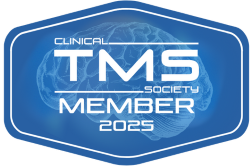
In 2024, more than 5.9 million people worldwide completed an online mental health screening through Mental Health America’s National Prevention and Screening Program. Among US participants, nearly 4 in 5 scored in the moderate-to-severe range for symptoms of a mental health condition.
The picture in Wisconsin reflects this national concern. Nearly 22% of adults in Wisconsin reported experiencing a mental health diagnosis, slightly higher than the US average of 21%. Around 219,000 Wisconsinites, about 5% of the state’s population, reported having serious thoughts of suicide. While Wisconsin is often ranked as one of the top states in the country for access to mental health care, the challenges facing communities remain significant.
Mental Health in Wisconsin & Dane County
Zooming in further, Dane County and the greater Madison area mirror these realities. Though the region benefits from strong medical institutions and active community organizations, residents continue to face rising rates of depression, anxiety, alcohol misuse, and barriers to specialized treatment.
According to the National Alliance on Mental Illness (NAMI):
- About 244,000 Wisconsin adults experienced serious mental challenges in the past year.
- Nearly 70,000 Wisconsin youth between the ages of 12–17 had at least one major depressive episode, with 41% receiving no treatment at all.
- Wisconsin’s alcohol consumption rates are consistently among the highest in the nation, with binge drinking costing billions statewide each year.
In Dane County specifically:
- About 23.8% of adults report having been diagnosed with depression at some point in their lives—higher than in many surrounding counties.
- Among high school students, more than 1 in 4 (26%) reported feeling sad or hopeless nearly every day for two weeks or longer, a key sign of depression.
- Alcohol misuse remains a pressing issue. Dane County ranks 10th in adult binge drinking and 27th in heavy drinking in Wisconsin.
Recognizing When It’s Time to Seek Support

Everyone experiences periods of sadness or stress. But when these feelings persist and interfere with daily life, they may point to something more serious. Common symptoms of depression include:
- Loss of interest in hobbies or activities
- Persistent fatigue or low energy
- Difficulty sleeping or sleeping too much
- Changes in appetite or weight
- Feelings of worthlessness or guilt
- Difficulty concentrating
- Suicidal thoughts or frequent preoccupation with death
Depression and related conditions affect not only the person, but also friends and family who are often unsure how to help. These challenges can also worsen existing medical conditions such as diabetes or heart disease, creating a cycle of physical and emotional strain.
Traditional treatments like talk therapy, psychiatric medications, and support groups can be life-changing for many. However, some people find that these approaches don’t provide full relief, or the side effects of medication become too difficult to manage. This is where advanced treatment options can play a vital role.
When Traditional Treatments Aren’t Enough
For decades, the standard care for conditions like major depression has been a combination of therapy and medication. While these remain essential tools, research shows that up to one-third of people with depression do not respond adequately to first-line treatments.
Some people struggle with lingering side effects of antidepressants, such as weight gain, fatigue, or sexual dysfunction. Others may cycle through multiple prescriptions without finding lasting relief. For these individuals, the frustration can deepen their feelings of hopelessness.
Advanced therapies like transcranial magnetic stimulation (TMS) and Spravato (esketamine nasal spray) offer hope to people who seem to be stuck in their recovery.
Transcranial magnetic stimulation
TMS is a non-invasive treatment that uses magnetic pulses to gently stimulate specific brain regions involved in mood regulation.
- TMS is FDA-approved for treatment-resistant depression.
- Sessions are conducted in an outpatient setting and require no anesthesia.
- Most patients remain fully alert during treatment and can resume normal activities afterwards.
- Side effects are typically mild and may include temporary scalp discomfort or mild headaches.
Because TMS directly targets the brain circuits linked to depression, it can be an effective alternative for those who have not responded to medications. After several weeks of treatment, many patients begin to see improvements in mood, focus, and overall well-being.
Spravato
Spravato is the brand name for esketamine, a newer type of antidepressant that’s different from the pills most people are familiar with. It’s FDA-approved for adults who have treatment-resistant depression (meaning other medications haven’t worked) or major depression with suicidal thoughts.
Here’s what makes it unique:
- Faster action: Traditional antidepressants can take weeks to show results. Spravato works on a different set of brain receptors that affect mood and thought patterns and can start easing symptoms more quickly.
- How it’s given: Instead of being a pill you take at home, Spravato comes as a nasal spray that you use at a clinic. A medical professional guides you through the process.
- Safety monitoring: After taking Spravato, patients stay at the clinic for about two hours so the care team can make sure they’re safe and comfortable.
- Possible side effects: Some people may feel dizzy, lightheaded, or disconnected from their surroundings (a sensation called dissociation). Blood pressure can also rise temporarily. These effects usually fade before the session ends.
It’s important to know that Spravato is not a stand-alone solution. Instead, it’s designed to be part of a comprehensive treatment plan, often alongside talk therapy, ongoing medications, and support from friends, family, or community resources.
For people who have tried other antidepressants without success, Spravato can open the door to a different kind of relief and hope.

Why Advanced Treatment Options Matter in Dane County
Advanced treatments like TMS and Spravato expand the menu of treatment options available for residents of Madison, Wisconsin and the surrounding areas. They are especially meaningful in Dane County, where community data shows high rates of depression, substance use, and gaps in traditional care.
When combined with community mental health services, such as crisis lines, support groups, and educational resources, TMS and Spravato can fill an important void. They provide new hope for people who have already tried medications and therapy but still feel trapped by their symptoms.
The Role of Friends and Family in Recovery
Mental health recovery doesn’t happen in isolation. Support from friends and family plays a critical role. Loved ones can help by:
- Encouraging open conversations about mental health
- Helping monitor progress with a new treatment plan
- Offering to attend appointments or learn about treatment options
- Providing ongoing emotional support, even when progress feels slow
Knowing that these advanced therapies are available locally in Middleton allows both people and their families to feel less alone in the recovery process.
Finding Relief in Middleton, WI
If you or someone you love in Dane County, Wisconsin, is struggling with symptoms of depression and traditional care hasn’t brought the relief you need, advanced treatment options are available close to home.
At Relief Mental Health’s Middleton clinic, experienced providers offer TMS and Spravato, tailored to each person’s needs. These therapies can be life-changing for those who have not found success with other approaches.
You don’t have to keep struggling with the weight of depression. Relief is possible, and it’s available right here in Middleton. Reach out to Relief Mental Health’s Dane County clinic today to explore whether TMS or Spravato may be the next step in your recovery journey.

